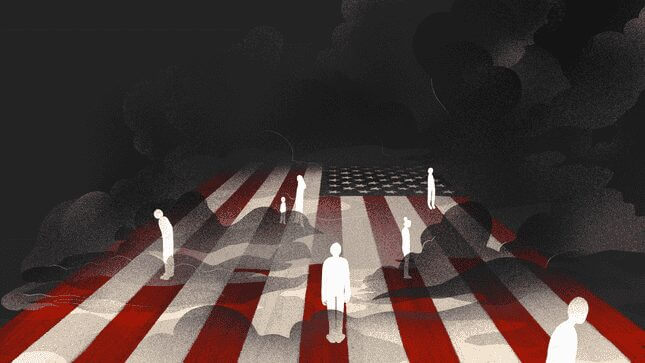

It was January when Ashleigh lost her job at the grocery store, and March when she first started driving without a license. The chain of events felt like dominos coming down one by one, but there was nothing she could do to stop them. “My work permit expired, so my job put me on leave,” she says. “The DMV gave me a two-month extension, kind of like a temporary permit, but that expired in March.”
Ashleigh, who is 23 and asked that I not use her last name, was eight years old when she came with her parents to the United States from Jamaica. She is one of the nearly 700,000 immigrants who depend on Deferred Action for Childhood Arrivals (DACA) to hold down jobs, licenses, and the basic contours of their lives. But the program that makes those things possible is now on life support, kept alive by a patchwork of legal challenges filed in response to Donald Trump’s decision to arbitrarily and maliciously rescind it in September of 2017.
As the program’s fate was thrown into uncertainty, Ashleigh’s sense of normalcy disappeared with it. She has no idea if it will ever return: While she says it has previously taken a month or so to receive all the necessary paperwork she would need to renew her DACA status and proceed with her life, the process this time around has meant nearly seven months of waiting.
That delay has meant taking risks. “The other day my car got pulled over,” she says. She ended up asking her friend to drive that day, she explains, but “if I had gotten pulled over I would have probably been arrested, which would ruin my whole life.”
Ashleigh isn’t alone in her fear over how small decisions can have life-changing consequences. Thousands of DACA recipients are now facing the same sense of uncertainty about their status, which makes anything from driving a car to keeping a job a massive undertaking. DACA recipients I spoke to described the tenuous, zombie-like continuation of the program as a cold comfort; instead, they describe a constant sense of uncertainty, a feeling of Hurry Up and Wait for the rest of your life. And a looming sense of danger in a country that should feel like home.
Congress has been working on a DACA “fix” since Trump first rescinded the program last year, but there is still nothing to show for all of the political maneuvering and hand-wringing.
Over the course of the last year, House Republicans have repeatedly claimed they were crafting a legislative solution, but each version was loaded with poisonous and xenophobic caveats, including provisions that required the construction of a wall on the U.S.-Mexico border and ends diversity visas and family-based visa programs. Predictably, the bills didn’t pass.
Earlier this month, a federal judge in Texas—Andrew Hanen, a George W. Bush appointee who, in 2015, blocked previous attempts to expand DACA to protect immigrant parents from deportation—heard arguments from Texas and eight other states that insist DACA is a financial burden foisted upon them by President Obama and are demanding its end. “Obama acted outside his constitutionally provided powers when he created DACA,” wrote Attorney General of Texas Ken Paxton in a USA Today op-ed. “We are suing to end DACA and send it to Congress where it belongs.”
When we do anything, when we go out while undocumented, you’re constantly thinking ten plays ahead.
Despite a regular influx of headlines about the program, recipients find themselves waiting in much the same way they were this time last year. And as the Trump administration increases its crackdown on immigrants in communities across the country, their sense of fear has risen.
-

-

-

-

-

-

-

-

-

-

-

-

-

-

-

-

-

-

-

-

-

-

-

-

-

-

-

-

-

-

-

-

-

-

-

-

-

-

-

-








































